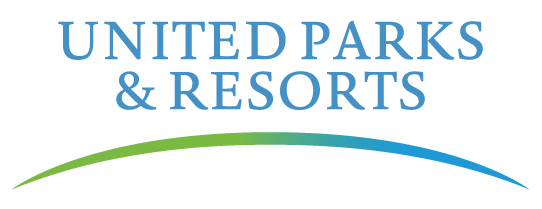The State of North Atlantic Right Whales
North Atlantic right whales are a critically endangered species with an estimated 350 left in the world today. Native to the eastern coasts of the US and Canada, these whales have experienced a serious population decline over the last decade, due in large part to vessel strikes and entanglements. While many organizations are working hard to ensure the remaining whales have the appropriate time and conditions to continue reproducing, the species needs support to recover and prevent the population from becoming extinct.
This past Friday, in honor of Whale Week and World Whale Day, SeaWorld convened a panel of leading voices in the conservation of North Atlantic right whales to discuss what is being done and what is required to save them. This session was part of a new series from SeaWorld, called Conversations on Conservation, which aims to bring together government agencies, scientists, NGOs and policymakers, among others, to discuss important issues in conservation.
To an audience of more than 70 virtual attendees, Dr. Chris Dold, Chief Zoological Officer for SeaWorld, moderated the inaugural panel discussion joined by Dr. Eric Patterson, Cetacean and Pinniped Conservation Lead for NOAA Fisheries Office of Protected Resources, and Dr. Michael Moore, Senior Scientist Director of the Marine Mammal Center at Woods Hole Oceanographic Institution.
 Image Credit: NOAA Fisheries
Image Credit: NOAA Fisheries
Dr. Patterson and Dr. Moore are experts in their fields, working on the frontlines of conservation to observe and monitor the North Atlantic right whale and to develop innovative and effective solutions to stabilize and recover the population.
“North Atlantic right whales are a focus of NOAA’s Species in the Spotlight initiative,” said Dr. Patterson. “We work with partners" such as SeaWorld to address the threats and conditions animals under the Endangered Species Act are facing.”
The five main focus areas NOAA works on regarding North Atlantic right whales are protection from entanglement, protection from vessel strikes, investigating and monitoring their population and health, collaborating with counterpart organizations in Canada, and improving knowledge of additional factors limiting recovery.
“Reducing all human-caused stressors is key to stabilizing and increasing the North Atlantic right whale population,” explained Dr. Patterson. “The most significant of these are deadly vessel strikes and entanglement in fishing gear, but other stressors such as noise from human activities can disrupt communication and may impact health.”

Dr. Moore of Woods Hole Oceanographic Institution has nearly 44 years of experience working in marine animal research and has written extensively on whale conservation. His most recent endeavor is contributing to the development of On-Demand fishing gear that replaces the need for endlines by using an acoustic retrieval system.
“Endlines that connect a surface buoy to fishing gear on the sea floor are a big entanglement risk to North Atlantic right whales,” said Dr. Moore. “An On-Demand system allows lobster and crab traps to be located on the sea floor and retrieved by release of a flotation device, eliminating the need for endlines to stay in the water for long periods.”
 Image Credit: Natalie Renier/©Woods Hole Oceanographic Institution
Image Credit: Natalie Renier/©Woods Hole Oceanographic Institution
Reducing the cost of this On-Demand technology and working with fishermen, industry groups, manufacturers, and legislators are among Dr. Moore’s top priorities.
As an accredited zoological organization, SeaWorld has extensive expertise and knowledge gained from the animals in its care that benefits wild populations and advances conservation research.
“At SeaWorld, we provide incredible welfare programs for animals. Over our 50-year history we have developed an abundance of marine animal care expertise, knowledge, and skills, which we apply as part of our conservation efforts though our rescue and rehabilitation work,” said Dr. Dold. “Because we welcome so many visitors and guests into our parks each year, we are privileged to have the ability to make philanthropic contributions for conservation programs around the world.”
Earlier this year, the SeaWorld Conservation Fund surpassed $19 million in grants donated to organizations committed to conservation and rehabilitation projects across the globe.

“SeaWorld has an immense audience and a recognized brand, and we want to make sure we lend that brand to efforts that can move, impact, and support conservation work around the world,” said Dr. Dold. “We have lent our support to the Right Whale Coexistence Act of 2022 to make sure we are using our voice to support this critical issue. The solution for North Atlantic right whales is to make meaningful changes to the way we work in the oceans, so we can allow North Atlantic right whales to recover.”
Increasing public awareness is a vital part of conservation efforts for any endangered species. We can all do our part to help save the North Atlantic right whale by remaining educated and informed of the species’ challenges, giving them the space to bolster the population, and advocating for them as they cannot speak for themselves. Federal law prohibits anyone from approaching or remaining within 500 yards of a right whale, whether you are using a drone or in a boat, aircraft, jet ski, kayak, or surfboard.
If you see a sick, injured, or entangled right whale, be sure to report it to the appropriate authorities. From Maine to Virginia, you can call (866) 755-6622, and from North Carolina to Florida: (877) 942-5343. You can also report the sighting to the US Coast Guard or via the Whale alert app.
